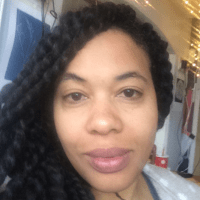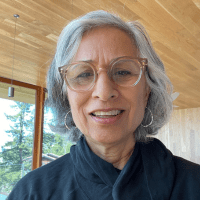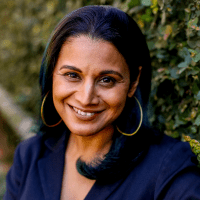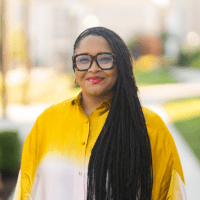
Transnational Feminist Networks Symposium
- The Annenberg School, Room 109 and the Forum
Join the Annenberg Center for Collaborative Communication for a symposium examining the development, maintenance, and challenges of feminist solidarities in our globalized and networked world.
The last decade has seen a clear upswing in the popularity of feminism on a global scale. Refrains like “We Should All Be Feminists” from the 2012 TEDx Talk of Nigerian author Chimamanda Ngozi Adichie, continue to have currency in popular culture across social media platforms, books, T-shirts, and even the visuals of global pop superstar Beyonce. The increased visibility of spectacular, media-friendly expressions of what has been termed “popular feminism” alongside the high-profile #MeToo movement, has facilitated a meaningful migration of new publics and a younger generation of activists into digital feminist networks. This popular feminism, driven by hashtags, neoliberal consumerism, and self-identification, eclipses the enduring work of transnational feminist networks that traverse digital and physical space to actively contest the global rise of far-right populism, gender-based discrimination and violence, and systemic attacks on the rights and bodily autonomy of women and gender-diverse individuals around the world.
This two-day symposium attends to the development, maintenance, and challenges of feminist solidarities in our globalized world. It aims to highlight discourses, collectivities, and the less obvious practices of solidarity often rendered invisible or insignificant within commercial and popular feminist hegemonies of the Global North. Decentering profit-driven social media platforms, our focus on transnational feminist networks engages questions of communication, cultural production, and critique creatively reimagining solidarities, mobilizations, and intimacies across borders. Its goal is to create a space for horizontal dialogue, encouraging encounters between feminist activists, artists, academics, and the community of Philadelphia at large.
The Transnational Feminist Networks Symposium is organized by a collective of graduate students from across the University of Pennsylvania with funding from the Annenberg Center for Collaborative Communication, the Center for Advanced Research in Global Communication, the Sachs Program for Art and Innovation, and Penn Global. The symposium will be hosted at the Annenberg School for Communication and gallery spaces at the University of Pennsylvania. The symposium will open with an art exhibition and reception on Thursday evening. This exhibition entitled “Living the Future Now: Practices in Borderless Feminist Futurities” will include a keynote, an artist talk, and commissioned original artworks by local and international artists. The following day, Friday, 13th September 2024, will include a full day of panels and workshops.
Full Program
Thursday, September 12
4:30 - 5:30 pm | Light Exhibition Reception
The Forum at the Annenberg School
5:30 - 5:45 pm | Welcome & Introductory Remarks
ASC Room 109
- Sarah Banet-Weiser, Ph.D. (she/her), Walter H. Annenberg Dean and Lauren Berlant Professor of Communication, Annenberg School for Communication, University of Pennsylvania; Research Professor, Annenberg School for Communication and Journalism, University of Southern California; Director, Annenberg Center for Collaborative Communication
5:45 - 6:30 pm | Keynote Address
ASC Room 109
-
Srila Roy, Ph.D (she/her), Professor of Sociology, University of the Witwatersrand in Johannesburg
6:30 - 7:15 pm | Artist Talk
ASC Room 109
- Sonia E. Barrett (she/her), Independent Artist/Sculptor
7:15 - 8:30 pm | Reception
The Forum at the Annenberg School
Friday, September 13
9:30 - 10:00 am | Breakfast
The Forum at the Annenberg School
10:00 - 10:15 am | Introduction
ASC Room 109
- Sarah Banet-Weiser, Ph.D. (she/her), Walter H. Annenberg Dean and Lauren Berlant Professor of Communication, Annenberg School for Communication, University of Pennsylvania; Research Professor, Annenberg School for Communication and Journalism, University of Southern California; Director, Annenberg Center for Collaborative Communication
10:15 - 11:45 am | PANEL ONE: PATHS // Past, Present, Futures of Transnational Feminist Networks
ASC Room 109
-
Elora Halim Chowdhury, Ph.D. (she/her), Professor of Women’s Gender Sexuality Studies, University of Massachusetts Boston
- Inderpal Grewal, Ph.D. (she/her), Professor Emeritus of Women’s, Gender, and Sexuality Studies, and of American Studies, Yale University
- Alissa Trotz, Ph.D. (she/her), Professor and Director of Women & Gender Studies Institute, University of Toronto
11:45 am - 1 pm | Lunch
Annenberg Plaza Lobby
1 - 2:30 pm | PANEL TWO: CONNECTIONS // Media, Technology & Transnational Feminist Networking
ASC Room 109
-
Firuzeh Shokooh Valle, Ph.D. (she/her), Professor of Sociology, Franklin & Marshall College
-
Sonia Nuñez Puente, Ph.D. (she/her), Professor of Journalism and Corporate Communication, Universidad Rey Juan Carlos, Spain
-
Jaimee Swift, Ph.D. (she/her), Assistant Professor of Political Science, James Madisons University
-
Tamara Kharroub, Ph.D. (she/her), Deputy Executive Director & Senior Fellow, Arab Center Washington DC
2:30 - 3:00 pm | Refreshments
The Forum at the Annenberg School
3:00 - 4:30 pm | PANEL THREE: TRANSLATION // Politics of Transnational Feminist Discourse and the Challenges of Cultural Translation
ASC Room 109
- Radha S. Hegde, Ph.D. (she/her), Professor of Media, Culture, and Communication, New York University
- Lilie Chouliaraki, Ph.D. (she/her), Chair in Media and Communications | Doctoral Programme Director, London School of Economics
- Jinsook Kim, Ph.D. (she/her), Assistant Professor in the Department of Film and Media, Emory University
4:30 - 5:00 pm | Closing Remarks
ASC Room 109
- Sarah Banet-Weiser, Ph.D. (she/her), Walter H. Annenberg Dean and Lauren Berlant Professor of Communication, Annenberg School for Communication, University of Pennsylvania; Research Professor, Annenberg School for Communication and Journalism, University of Southern California; Director, Annenberg Center for Collaborative Communication
5:00 - 6:30 pm | Reception
The Forum at the Annenberg School
Participants
Sarah Banet-Weiser

Sarah Banet-Weiser (she/her) is the Walter H. Annenberg Dean of the Annenberg School for Communication at the University of Pennsylvania and its Lauren Berlant Professor of Communication. In addition, she is a research professor at the University of Southern California’s Annenberg School for Communication and Journalism and the founding director of the Center for Collaborative Communication at the Annenberg Schools (C3). Her teaching and research interests include gender in the media, identity, citizenship, and cultural politics, consumer culture and popular media, race and the media, and intersectional feminism. Committed to intellectual and activist conversations that explore how global media politics are exercised, expressed, and perpetuated in different cultural contexts, she has authored or edited eight books, including the award-winning Authentic™: The Politics of Ambivalence in a Brand Culture (NYU Press, 2012) and Empowered: Popular Feminism and Popular Misogyny (Duke, 2018), and dozens of peer-reviewed articles, book chapters, and essays. She was formerly the editor of the flagship journal of the American Studies Association, American Quarterly, as well as co-editor of the International Communication Association journal, Communication, Culture, Critique, and was the founding co-editor of the New York University Press book series, Critical Cultural Communication Studies. Her latest book (co-authored with Kathryn Higgins), Believability: Sexual Violence, Media, and the Politics of Doubt (Polity, 2023), explores the convergence of the #MeToo movement and the crisis of post-truth.
Sonia E Barrett

Sonia E Barrett (she/her) performs Composites of plants, animals, elements and people to create interventions that presence their objectification and commodification, she also thinks about how to change perceptions of phenomena in “nature” that are a given. The work seeks to create new questions where there was a kind of certainty that has to do with the hegemony of normative western European values.
Born in the UK of Jamaican and German parentage Sonia E Barrett grew up in Hong Kong, Zimbabwe, Cyprus and the UK. She studied literature at the University of St Andrews Scotland and her MFA at Transart Institute Berlin/New York. Her work unpacks the boundaries between the determined and the determining with a focus on race and gender, She makes sculptural works so she can run her hands along the fissures and manifest strategies for multiple compatible existences and mourn. Her sculptural practice includes placemaking with a view to assembling communities under the threat of climate change to (Re) claim space as well as instituting permanently.
Sonia is a MacDowel fellow and has been recognized by the Premio Ora prize, NY Art-Slant showcase for sculpture and the Neo Art Prize. Her work has been shown at a number of galleries, including Tate Britain, OCCCA California, the NGBK Berlin, Tete Berlin, The Format Contemporary in Milan and Basel. Her works have been published and written about in the International Review of African American Art, The British Art Studies Journal, Black History 365, Kunstforum International, Protocollum Journal, ELSE, Financial Times, Evening Standard, Open University Geography Textbooks and Contemporary & América Latina.
Lilie Chouliaraki

Lilie Chouliaraki (she/her) is Professor of Media and Communications at the London School of Economics and Political Science. Her work focuses on the ethical and political complexities of communicating human suffering in the media with particular emphasis on four domains in which suffering appears as a problem of communication: disaster news; humanitarian and human rights advocacy; war & conflict reporting and migration news. Her most recent work is on the cultural politics of victimhood in western societies. Her book on the topic, entitled “Wronged. The Weaponization of Victimhood” is published in Columbia University Press (2024). Other book publications include ‘The Spectatorship of Suffering’ (2006), ‘The Soft Power of War’ (ed., 2008), ‘The Ironic Spectator. Solidarity in the Age of Post-humanitarianism’ (2013, ICA best book award), ‘The Routledge Handbook of Humanitarian Communication’ (2021) and ‘The Digital Border. Mobility, Technology, Power (2022).
Inderpal Grewal

Inderpal Grewal (she/her) is Professor Emeritus in the Program in Women’s, Gender, and Sexuality Studies at Yale University. She is one of the founders of the field of transnational feminist studies and known for her contributions to transnational feminist and cultural theory. Her published research includes topics such as South Asian cultural studies and postcoloniality, mobility and modernity, and nongovernmental organizations. Her most recent essays concern state violence, authoritarian populism and regimes of securitization.
She is the author of Home and Harem: Nation, Gender, Empire and the Cultures of Travel, Transnational America: Feminisms, Diasporas, Neoliberalisms, and Saving the Security State: Exceptional Citizens in Twenty-First Century America (Duke University Press, 2017). With Caren Kaplan, she has written and edited Gender in a Transnational World: Introduction to Women’s Studies and Scattered Hegemonies: Postmodernity and Transnational: Feminist Practices (University of Minnesota Press, 1994). With Victoria Bernal, she has edited Theorizing NGO’s: States, Feminism and Neoliberalism (Duke University Press, 2014). She is one of the editors of the Duke University Press book series entitled Next Wave: New Directions in Women’s Studies.
Elora Halim Chowdhury

Elora Halim Chowdhury (she/her) is Professor & Chair of the Department of Women's, Gender, and Sexuality Studies and Director of the Human Rights Program at the University of Massachusetts Boston. Her teaching and research interests include transnational feminism, violence and human rights advocacy, narrative, and film with an emphasis on South Asia.
She is the author of Ethical Encounters: Transnational Feminism, Human Rights, and War Cinema in Bangladesh (Temple University Press, 2022). Her first book, Transnationalism Reversed: Women Organizing Against Gendered Violence in Bangladesh (SUNY Press, 2011), was awarded the National Women’s Studies Association Gloria Anzaldua book prize in 2012. She has co-edited several volumes: Dissident Friendships: Feminism, Imperialism and Transnational Solidarity (University of Illinois Press, 2016), Interdisciplinary Approaches to Human Rights: History, Politics, Practice (Routledge, 2018), and South Asian Filmscapes: Transregional Encounters (University of Washington Press, 2020). Her current project explores affective and intimate realms of women’s narratives and storytelling around migration, food pathways, and ethics of care.
Elora has published academic essays, fiction and creative non-fiction in journals and anthologies on topics as varied as violence, women’s organizing in the Global South, transnational feminist praxis, nationalism, culture and migration, food and memory, and Islam and gender politics in South Asia. Prior to joining UMass, she worked for BRAC, a development NGO, Naripokkho, a women’s advocacy organization, The Daily Star, a national newspaper, the Rights Program in UNICEF in Bangladesh, and the Higher Education Program at the Ford Foundation, NY.
Jinsook Kim

Jinsook Kim (she/her) is an assistant professor in the Department of Film and Media at Emory University. She earned her Ph.D. in media studies from the Department of Radio-Television-Film at the University of Texas at Austin. Prior to joining Emory, She held a postdoctoral position with the Center for Advanced Research in Global Communication at the Annenberg School for Communication at the University of Pennsylvania.
Her research interests focus on feminist perspectives on digital media, online hate culture, and social and political activism in the context of contemporary South Korea. Her work has been published in peer-reviewed journals, including Feminist Media Studies, Television and New Media, Journal of Cinema and Media Studies, Communication, Culture & Critique, and Signs: Journal of Women in Culture and Society. She also authored chapters in the edited collections Mediating Misogyny: Gender, Technology, and Harassment and Mediating Gender in Post-Authoritarian South Korea. She is currently writing a book titled Sticky Activism: Online Misogyny and Feminist Activism in South Korea.
Sonia Núñez Puente

Sonia Núñez Puente (she/her) is Professor of Media, Gender and Communication at the Universidad Rey Juan Carlos (Madrid, Spain). Her research focuses on the analysis of social media, cultural politics, digital feminist activism and the transformation of cultural violence. She has led national and international research and development projects on digital feminist activism and gender-based violence. She has authored or edited seven books and more than seventy peer-reviewed articles and book chapters. She has been a Leverhulme Research Fellow at the University of Aberdeen (Scotland) and a lecturer at Vanderbilt University (USA). Núñez Puente has been the recipient of research awards such as the I3 Programme of Incentives for the Intensification of Research Activity (Spanish Ministry of Science and Research) or the Ramón and Cajal Programme of Research's Talent Attraction (Spanish Ministry of Science and Research). She is a member of the Spanish National Commission for Assessment of Research Activity (ANECA) and director of the Interuniversity PhD Programme in Interdisciplinary Gender Studies at the Universidad Rey Juan Carlos.
She has been a Visiting Scholar at the University of Cambridge (United Kingdom), the University of California, Santa Barbara (USA), the National University of Córdoba (Argentina), the CIES-IUL University Institute of Lisbon ISCTE-IUL (Portugal), the University of Coimbra (Portugal), the University of Milano-Bicocca (Italy) and Humboldt-Universität zu Berlin (Germany), among others. Professor Núñez Puente is currently PI of the R&D Project ‘The mediatization of women’s rage: frames of intelligibility and communicative strategies of politicizing transformation’ (Research Grant- Spanish Ministry of Science and Research).
Srila Roy

Srila Roy (she/her) is Professor of Sociology at the University of the Witwatersrand in Johannesburg. Her long-standing research and teaching expertise is in the area of transnational feminist and sexuality studies. Her latest books are the co-edited, Intimacy and Injury: in the wake of #MeToo in India and South Africa (Manchester University Press, 2022) and the sole-authored, Changing the Subject: Feminist and Queer Politics in Neoliberal India (Duke University Press, 2022). Changing the Subject was the winner of the Distinguished book award of the Sexualities section of the American Sociological Association and the best book award from the Feminist Theory and Gender Studies (FTGS) section of the International Studies Association. She is also the recipient of the inaugural FTGS Global South Feminist Scholar Award. She is a co-editor of the journal, Feminist Theory, Associate Editor of Sociology Compass, and co-edits a book series called Governing Intimacies in the South for Manchester University Press.
Radha Sarma Hegde

Radha Sarma Hegde (she/her) is Professor in the Department of Media, Culture and Communication at New York University. Her research and teaching focus on migration, media, globalization, South Asian diaspora, and transnational feminism. She is the author of Mediating Migration (Polity, 2016); co-editor of Routledge Handbook of Indian Diaspora (Routledge, 2018); and editor of Circuits of Visibility: Gender and Transnational Media Cultures (NYU Press, 2011). She has served as co-editor of the journal Feminist Media Studies and received the Teresa Award for the Advancement of Feminist Scholarship, International Communication Association. Her current work focuses on aspirations, language, and globalization in South Asia.
Tamara Kharroub

Tamara Kharroub (she/her) is the Deputy Executive Director and a Senior Fellow at Arab Center Washington DC. Her research work focuses on the intersection of technology and human rights and democracy in the Middle East and North Africa. She publishes research and policy analysis papers and editorials exploring the role of media and communication technology in the political process including issues of digital authoritarianism and repression, disinformation and information environments, cyber power and geopolitics, surveillance technologies, propaganda and media representation, identity politics online, artificial intelligence and autonomous weapons, and digital rights, in addition to research on Palestine/ Israel and US policy there. Kharroub holds a PhD from Indiana University Bloomington and an MA from the University of Westminster, and is the recipient of several awards and fellowships including Fulbright.
Firuzeh Shokooh Valle

Firuzeh Shokooh Valle (she/her) is a sociologist and journalist from Puerto Rico. She is an Assistant Professor of Sociology at Franklin & Marshall College. Her book In Defense of Solidarity and Pleasure: Feminist Technopolitics from the Global South (Stanford University Press 2023) examines how development discourse and policy frames the intersection between gender and digital technologies, and how these are being contested and negotiated by feminist organizations in Latin America and other regions of the global South. Firuzeh has authored and co-authored academic articles published in the peer-reviewed journals Sociology of Development, Feminist Media Studies, Journal of Contemporary Ethnography, Social Movement Studies, and the Cuban academic journal Temas. As a journalist, she has covered violence against women and feminist politics, racism, poverty and socioeconomic development, and migration in Puerto Rico. She has earned numerous national awards for her journalistic investigative work. She is the former Spanish Language Editor of the independent multilingual digital media publication Global Voices Online, where she mentored numerous aspiring journalists and women of color. Firuzeh has also done volunteer work with grassroots women’s organizations helping them design social media strategies that reflect their vision.
Jaimee A. Swift

Jaimee A. Swift (she/her) is the executive director and founder of Black Women Radicals, a Black feminist advocacy organization dedicated to uplifting and centering Black women and gender expansive people's radical activism in Africa and in the African Diaspora. She is also the creator and founder of The School for Black Feminist Politics, the Black feminist political education arm of Black Women Radicals. She is the co-author, with Joseph R. Fitzgerald, of the forthcoming biography of Black feminist icon Barbara Smith. She is the co-creator of the Black and Asian Feminist Solidarities Project, a collaboration between Black Women Radicals, the Asian American Feminist Collective, and the Asian American Writers’ Workshop. The project is now an anthology that will be published by Haymarket Books in 2025. She is an Assistant Professor of Black Politics in the Department of Political Science at James Madison University. Her research interests are Black Politics, Black Feminist Political Theory, and Afro-Diasporic/Global Black Feminist Movements. Swift has a Ph.D. in Political Science from Howard University. Her dissertation, "Toward A Queer Amefricanidade: State, Structural, and Symbolic Violence and Afro-Brazilian LGBT Women's Resistance" in Salvador, Bahia, Brazil examines Afro-Brazilian queer and transgender women's historical and contemporary political struggles against multiform state and quotidian violence since Brazil's democratic transition from military dictatorship from the 1980s to present day.
Alissa Trotz

Alissa Trotz (she/her) is a Professor of Caribbean Studies at New College and the Director of Women and Gender Studies. She is also affiliate faculty at the Dame Nita Barrow Institute of Gender and Development Studies at the University of the West Indies, Cave Hill, Barbados; and a member of the O’Neill-Lancet Commission on Racism, Structural Discrimination, and Global Health. She is a resource person with Red Thread Women’s Organization in Guyana and editor of “In the Diaspora,” a weekly newspaper column in the Guyanese daily, Stabroek News. Alissa’s work is situated within a tradition of feminist political economy, and a Caribbean feminist tradition in particular, that takes an intersectional approach to social reproduction as a starting point and node of interrogation to think through histories and processes of dispossession and their contemporary manifestations. Her research trajectory unfolds across related themes that address processes of social reproduction, neoliberalisation & Caribbean feminisms; coloniality, racial formations, gendered difference and violence; transnational migration, remittances and diaspora engagement; and Caribbean knowledge production.
Her current research looks at diaspora, indigeneity and extractivism in colonial Guyana tracking local, regional and transnational strategies of survival/survivance prompted by localized insecurities, the deep and everyday injuries of prompted by neoliberalism. Her research asks what does it mean to hold space for imagining what might emerge when we attend closely to the deeply gendered practices that make heartbreakingly visible the violence of capitalism and sovereignty, all while still stubbornly reaching for other, affirming models of human-ness and value?
Moderators
Sarah J. Jackson

Sarah J. Jackson (she/her) studies how media, journalism, and technology are used by and represent marginalized publics, with a focus on how communication arising from Black, feminist, and activist spaces. Jackson's first book, Black Celebrity, Racial Politics, and the Press (Routledge, 2014), examines the relationship between Black celebrity activism, journalism, and American politics. Her co-authored second book, Hashtag Activism: Networks of Race and Gender Justice (MIT Press, 2020), focuses on the use of Twitter in contemporary social movements. In 2020, she was awarded an Andrew Carnegie Fellowship to support research on her next book, A Second Sight, which traces the power and innovation of African American media-makers.
Deborah A. Thomas

Deborah A. Thomas (she/her) is an interdisciplinary scholar, filmmaker, and producer. She is the R. Jean Brownlee Professor of Anthropology and the Director of the Center for Experimental Ethnography at the University of Pennsylvania. She is the author of prize-winning books, including Political Life in the Wake of the Plantation (2019), Exceptional Violence (2011), and Modern Blackness (2004), and she co-edited the volumes Sovereignty Unhinged (2023), Citizenship on the Edge (2022), Changing Continuities and the Scholar-Activist Anthropology of Constance R. Sutton (2022), and Globalization and Race (2006). Thomas co-directed and co-produced the documentary films Bad Friday (2011) and Four Days in May (2017) and she co-curated a multi-media installation titled "Bearing Witness: Four Days in West Kingston," which was on view at the Penn Museum from November 2017 to October 2020. She is the recipient of several awards including a Guggenheim fellowship, and she is an elected member of the American Academy of Arts and Sciences. Prior to Thomas’s life as an academic, she was a professional dancer with the New York-based Urban Bush Women.
Guobin Yang

Guobin Yang (he/him) is the Grace Lee Boggs Professor of Communication and Sociology at the Annenberg School for Communication and Department of Sociology at the University of Pennsylvania, where he directs the Center on Digital Culture and Society and serves as Deputy Director of the Center for the Study of Contemporary China. He is the author of The Wuhan Lockdown (2022), The Red Guard Generation and Political Activism in China (2016), and The Power of the Internet in China: Citizen Activism Online (2009). Yang has edited or co-edited seven books, the most recent being Pandemic Crossings: Digital Technology, Everyday Experience, and Governance in the COVID-19 Crisis (with Bingchun Meng and Elaine Yuan, 2024). His current work focuses on digital activism, digital storytelling, and global communication as cultural translation.
Organizing Committee
Cienna Davis

Cienna Davis (she/her) is a Black feminist community organizer, cultural worker, and doctoral candidate at the Annenberg School for Communication of the University of Pennsylvania. She earned her BA in Ethnic Studies and Communication from the University of California San Diego, where she was a McNair Scholar, and her MA in North American Studies at the Freie Universität Berlin. Davis co-founded the diasporic Black feminist collective Soul Sisters Berlin where she organized events, performances, hair workshops, discussions, and art retreats to educate, empower, and connect Black women in Berlin. These experiences form the basis of her dissertation research on transnational Black feminist networks. She utilizes performance ethnography to engage Afro-textured hair as a language and communication network facilitating tactile connections between Black femmes of the diaspora. Her writing and speaking on Afrofuturism, Black feminism, colorism, digital blackface, popular culture, and community organizing have been published in academic journals, magazines, books, edited collections and newspapers in the US, Germany, Switzerland, and Korea.
Simron Gill

Simron Gill (she/her) is a doctoral student at the Annenberg School for Communication. Her research interests center around the South Asian diaspora and the mediations of violence against women and girls, the social and subjective effects of this discourse, and the institutional politics that frame such positioning that speaks to the broader shaping of a market for women's safety. Her work has been published in Culture, Communication, and Critique, Women Studies Quarterly, and the International Journal for Communication.
Valentina Proust

Valentina Proust (she/her) is a doctoral student at the Annenberg School for Communication, where she is also a fellow at the Center for Media at Risk and the Center for Advanced Research in Global Communication. She holds a master's degree in Hispanic Linguistics from Universidad de Chile. Her research investigates media representation and construction of collective memory, focusing on its relationship with social movements. She examines how social movements use mediatized memory to shape their discourses, with particular attention to cultural trauma, mourning, and collective identity. Her work critically engages with gender issues and feminist movements in the Global South, especially in Latin America, and explores the legacies of authoritarian regimes during the latter half of the twentieth century in the region. Some of her current projects include analyzing feminist protest anthems as expressions of solidarity, digital mourning activism and the collective expressions of grief, and the representation of memories from the Chilean dictatorship.
Lucila Rozas Urrunaga

Lucila Rozas (she/her) is a Ph.D. student at the Annenberg School of Communication at the University of Pennsylvania. She also holds a MSc in Sociology from the University of Amsterdam and a BA in Political Science from Pontificia Universidad Católica del Perú. Her research focuses on the transnational circulation of subjugated knowledges (ideas, affects, practices, and discourses) among feminist publics, specifically those emerging from South America. Her most recent project engages in multimodal critical discourse analysis (MCDA) and other qualitative methods to look at how the feminist affects of the Ni Una Menos movement stick to certain "objects," how they are digitally mediated, and what enables their multi-sited circulation. She also explores how to insert artistic practices into her research by engaging in video work, performance, and creative writing.
About the Annenberg Center for Collaborative Communication
The Annenberg Center for Collaborative Communication (Annenberg C3) enables scholars to think and work across institutional, geographic and disciplinary divides. Jointly established by the USC Annenberg School for Communication and Journalism and the University of Pennsylvania’s Annenberg School for Communication, the center’s faculty, postdoctoral fellows and doctoral students seek to address emerging global issues broadly across the field of communication and media.
The first-of-its-kind center not only explores what “collaboration” means for the field of communication and media, but also provides critical infrastructure for reimagining and potentially revolutionizing how collaborative communication can be used to address complex issues such as health care, data privacy, cultural and demographic change, politics, new media, gender/racial equity and justice, media literacy and policy, journalistic trust, and the restructuring of media industries in an evolving age of streaming and networked distribution.
Events
View AllDisclaimer: This event may be photographed and/or video recorded for archival, educational, and related promotional purposes. We also may share these video recordings through Annenberg's website or related platforms. Certain events may also be livestreamed. By attending or participating in this event, you are giving your consent to be photographed and/or video recorded and you are waiving any and all claims regarding the use of your image by the Annenberg School for Communication. The Annenberg School for Communication, at its discretion, may provide a copy of the photos/footage upon written request.
